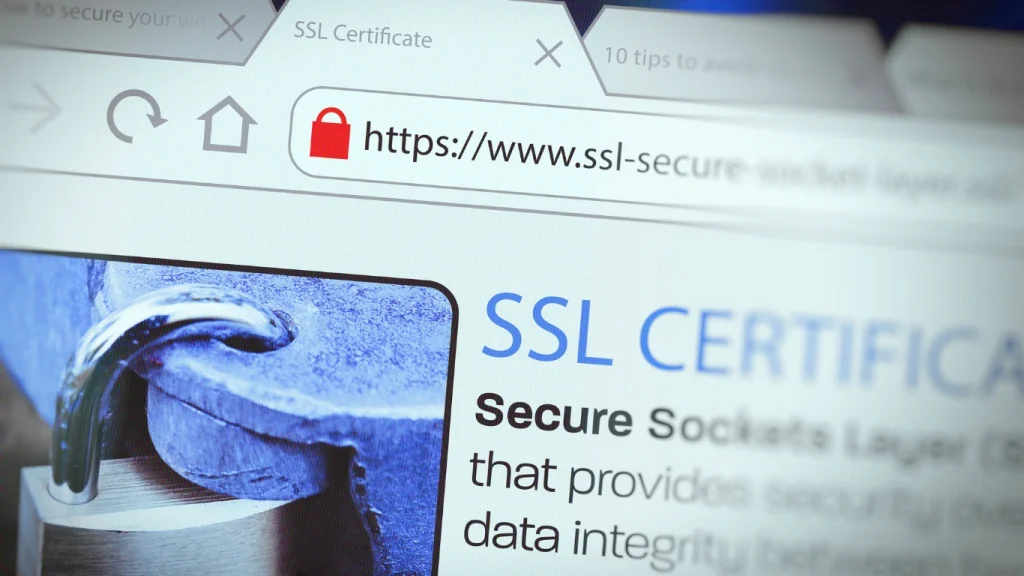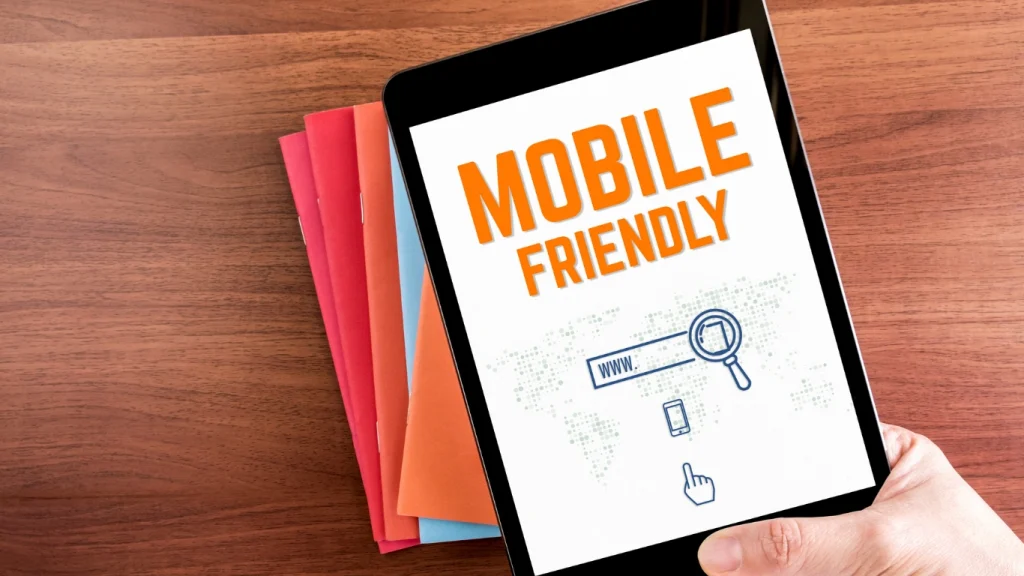In the modern digital age, securing your website is no longer optional, it’s an absolute necessity. Whether you’re small business owner in Singapore running an online store, a local tuition centre offering class bookings, or a blogger sharing insights on WordPress, the need for SSL (Secure Sockets Layer) certificates has become a non-negotiable standard.
Yet, many SMEs in Singapore still overlook or delay SSL implementation—either due to cost concerns, lack of awareness, or underestimating its importance. In this article, we’ll explore why SSL certificates are critical, how they work, and why every website—regardless of size or industry—needs one in 2025 and beyond.
What is an SSL Certificate?

An SSL certificate is a digital certificate that encrypts the data transferred between a user’s browser and your website. It ensures that sensitive information—like login credentials, credit card details, or personal data—is secure and private.
Websites with SSL certificates display a padlock symbol in the address bar and use “HTTPS” instead of just “HTTP”.
- HTTPS = HyperText Transfer Protocol Secure – This extra ‘S’ stands for ‘secure’—and in the eyes of your customers, that makes all the difference.
Why SSL Is a Must-Have in 2025
Let’s take a closer look at why SSL is no longer just a ‘nice to have’ but a non-negotiable requirement for any modern website, particularly in a tech-savvy, digital-first nation like Singapore. With the increasing digitisation of businesses across sectors—from F&B and education to financial services and retail—data protection and online trust have moved to the forefront of consumer expectations and regulatory requirements.
1. It Protects Your Customers’ Data in an Age of Cyber Threats
In today’s landscape of rising cyber threats, SSL certificates are the frontline defence in protecting customer information. SSL (Secure Sockets Layer) works by encrypting data transmitted between a user’s browser and your website. This means that when someone submits sensitive data—such as their name, email address, contact number, credit card information, or even login credentials—that data is scrambled into a secure code that cannot be read by third parties or intercepted by hackers.
This is particularly critical on websites with:
- Online forms (enquiries, appointment bookings, newsletter signups)
- Login portals (e.g. for members or customers)
- eCommerce checkouts (credit card or PayNow transactions)
- Subscription or donation pages
In Singapore, where the public is becoming increasingly aware of cybersecurity risks, users are more cautious than ever. High-profile incidents—such as the SingHealth data breach or rising phishing scams reported by the Cyber Security Agency (CSA) and the Personal Data Protection Commission (PDPC)—have made Singaporeans more discerning about which sites they trust with their personal data.
Even something as simple as a contact form without SSL may raise red flags for a visitor. Worse still, browsers like Chrome now display a “Not Secure” warning next to the URL of any site without HTTPS, which can immediately destroy user trust and lead to abandonment. This is especially damaging for small businesses or SMEs trying to build credibility in competitive sectors.
Furthermore, for businesses operating in or targeting Singapore, SSL encryption is not only about customer reassurance—it’s increasingly a matter of regulatory compliance. Under the Personal Data Protection Act (PDPA), businesses are required to make “reasonable security arrangements” to protect personal data in their possession. Not using SSL when processing user information could arguably place a business in breach of these requirements, opening the door to fines, complaints, or reputational damage.
In essence, SSL is your baseline defence against cyber risks, but it’s also a signal to your customers and regulators alike that your business takes data protection seriously. In a region as digitally advanced as Singapore—where digital trust is becoming a cornerstone of consumer loyalty—SSL is not just about tech. It’s about building confidence, fostering trust, and future-proofing your online presence.
2. It’s a Requirement for E-Commerce and Online Transactions
If you’re running an eCommerce store in Singapore whether using WooCommerce, Shopify, Wix, or a custom WordPress site—an SSL certificate is not just a best practice; it’s a requirement. No reputable payment gateway will allow integration unless your site is properly secured with SSL encryption.
Popular payment providers in Singapore such as HitPay, Stripe, PayNow, PayPal, and FavePay—all demand that websites use HTTPS before they can process any kind of financial transaction. This is to ensure that every piece of sensitive customer data, from card numbers to billing addresses, is transmitted safely and cannot be intercepted during checkout.
Imagine a customer trying to purchase something from your store. The moment they see a “Not Secure” warning in their browser, confidence in your business takes a hit. In an online environment where trust is everything, even the smallest sign of insecurity can lead to lost sales and high bounce rates—especially in a discerning and digitally aware market like Singapore.
But this need for SSL isn’t just limited to online stores selling physical products.
Even if you’re:
- Running a service-based business (e.g. tuition, home repairs, salons, or wellness),
- Allowing customers to book appointments or request quotes online,
- Collecting email addresses for a newsletter,
- Using a simple contact form to gather leads,
…you are collecting personal data, and that immediately places you under the jurisdiction of Singapore’s Personal Data Protection Act (PDPA).
Under the PDPA, all businesses—regardless of size—are legally required to make reasonable security arrangements to protect personal data from unauthorised access or disclosure. A failure to use SSL, especially when collecting data via online forms, may be interpreted as negligence or non-compliance. This could lead to:
- Financial penalties
- Formal investigations by the PDPC
- Erosion of customer trust
- Brand reputation damage that’s difficult to repair
Moreover, Singaporean consumers are becoming increasingly familiar with their digital rights. The more they understand about data protection, the less forgiving they are of companies that fail to take adequate measures. In a competitive market, this can give your business a serious disadvantage.
For eCommerce merchants leveraging government initiatives such as the Productivity Solutions Grant (PSG) or Start Digital Pack, SSL should be built into your website from Day One. If your web developer or vendor overlooks this, it’s worth raising the issue—because the consequences of neglecting it can be costly.
In short, whether you’re processing transactions or simply collecting email addresses through a form, SSL is a non-negotiable standard. It’s not just about ticking a technical box—it’s about protecting your business, complying with local laws, and creating an online experience that customers in Singapore can trust.
Did You Know? Failing to use SSL when collecting personal data could result in non-compliance with PDPA, leading to reputational damage and possible fines.
3. It Boosts SEO Rankings

Google has been signalling its preference for secure websites since as early as 2014, when it officially announced that HTTPS would become a ranking signal. Over the years, this has evolved from a minor factor to a confirmed and influential ranking criterion in Google’s complex algorithm. In simple terms, having an SSL certificate and serving your website over HTTPS can directly impact how your site ranks in search engine results pages (SERPs).
For businesses operating in Singapore, this advantage can be especially significant. The local market is highly competitive, with many industries—such as tuition and education services, digital marketing and web development agencies, fashion and retail, as well as food and beverage outlets—all vying for consumer attention online. In sectors where numerous companies offer similar services or products, SEO becomes a critical battleground for visibility and customer acquisition.
In such saturated markets, even a seemingly small edge—like an SSL certificate—can be the difference between appearing on the coveted first page of Google search results or being buried several pages deep. Given that over 90% of online experiences start with a search engine and that most users rarely go beyond the first page, a higher ranking translates to significantly more traffic, enquiries, and sales.
Moreover, beyond direct ranking influence, SSL contributes indirectly to SEO through:
- Lower bounce rates: Visitors trust secure sites more and are likelier to stay longer and engage.
- Improved user experience: HTTPS supports faster loading times via HTTP/2 protocols, which Google also favours.
- Compatibility with new browser features: Modern browsers often restrict functionality on non-secure sites, impacting usability and SEO signals.
Singaporean consumers are increasingly savvy about online security. When they see the HTTPS padlock, it builds immediate trust—a crucial factor that encourages clicks and repeat visits, further boosting your SEO through positive user signals.
For businesses aiming to capture the fast-growing online Singaporean audience, particularly those pursuing government-backed digitalisation grants like the Productivity Solutions Grant (PSG) or going through the SME Go Digital programme, SSL is an essential foundational step—not just for security but as a strategic SEO investment.
In essence, SSL certificates offer you a competitive SEO advantage, helping your business stand out in crowded industries and build sustainable organic growth in Singapore’s dynamic digital marketplace.
- Tip: If you’re using tools like Google Search Console, you’ll notice that Google indexes your HTTPS pages and may mark HTTP versions as “insecure” or “duplicate”—negatively impacting SEO.
4. Chrome and Safari Will Flag Your Site Without SSL
Modern browsers like Google Chrome, Safari, and Firefox now warn users when they attempt to visit a website that doesn’t use HTTPS. These warnings often come with alarming messages like:
“Your connection to this site is not secure”
“Hackers might be trying to steal your information…”
This kind of alert will almost certainly drive potential customers away, no matter how good your product or service is.
In a fast-paced city like Singapore, where trust and convenience are paramount, users simply won’t risk browsing a site marked as unsafe.
5. It’s Crucial for Mobile-Friendly & Progressive Web Apps

Singapore is undeniably a mobile-first market, with over 90% of web traffic originating from smartphones and other mobile devices. This trend continues to accelerate as Singaporeans increasingly rely on their mobile devices for everything from browsing and shopping to banking and booking services. In this mobile-centric digital landscape, SSL certificates play a vital role—not only in securing your website but also in enhancing mobile performance, trust, and compatibility.
One key reason SSL is indispensable is because of the growing adoption of Progressive Web Apps (PWAs) in Singapore. PWAs combine the best of web and mobile apps to offer fast, reliable, and engaging user experiences. However, PWAs require HTTPS to function properly. Without SSL, your site cannot fully leverage PWA features like offline access, push notifications, or home screen installation—putting you at a competitive disadvantage in the increasingly app-driven Singapore market.
Mobile browsers themselves have also become stricter about security. For example, Safari on iOS devices, which dominates a significant share of Singapore’s mobile browser usage, actively warns users when they visit non-secure HTTP sites, often displaying alarming messages that can deter visitors. Google Chrome, the most widely used browser in Singapore, similarly flags insecure sites, marking them as “Not Secure,” which undermines user confidence instantly.
Furthermore, technologies like Accelerated Mobile Pages (AMP)—which are designed to deliver lightning-fast mobile experiences—mandate HTTPS as a prerequisite. AMP is particularly popular among Singaporean news publishers, eCommerce businesses, and service providers aiming to reduce loading times and improve user engagement on mobile devices.
If you’re actively optimising your WordPress site for mobile performance—which is a must given Singapore’s hyper-connected, on-the-go population—then implementing SSL is not optional but essential. Beyond the obvious security benefits, SSL ensures your site is technically compatible with these mobile technologies and provides a seamless, trustworthy experience that meets the expectations of today’s discerning Singaporean users.
In summary, securing your website with SSL supports not only data protection but also crucial technical requirements and user experience enhancements in Singapore’s mobile-first digital ecosystem. Ignoring this can severely limit your site’s performance and credibility in the eyes of mobile users, who form the vast majority of your audience.
Singapore-Specific Reasons to Get SSL in 2025
Let’s dive deeper into some Singapore context to understand why SSL adoption is crucial locally:
Government Emphasis on Digital Trust
The Singapore government, through bodies like IMDA and CSA (Cyber Security Agency of Singapore), continues to emphasise the importance of digital trust.Programmes like SG Digital, GoBusiness, and SMEs Go Digital urge small businesses to prioritise cybersecurity.
SSL implementation is a baseline measure that’s often recommended (and sometimes required) when applying for schemes like the Productivity Solutions Grant (PSG).
Educated Consumers Demand Secure Sites
- Singaporean consumers are tech-savvy and security-aware. Whether you’re a cafe owner in Tiong Bahru or running a logistics firm in Jurong, your customers will notice (and expect) the HTTPS padlock. If you don’t have it, they may move to a competitor who does
Grant Funding Covers SSL
Many PSG-approved web development packages in Singapore include SSL implementation by default. If you’re already engaging an agency under the grant, be sure to check that SSL is part of the deliverables and don’t skip to save cost.
How to Get an SSL Certificate
Getting SSL installed on your WordPress site in Singapore doesn’t have to be complex. Here’s a quick overview of how it works:
1. Choose a Certificate Type
- Free SSL (Let’s Encrypt): Ideal for basic sites or blogs.
- Premium SSL: Comes with warranties and extended validation—recommended for eCommerce, finance, and healthcare websites.
2. Get It Installed
If you’re using a web host like SiteGround, Exabytes, Vodien, or GoDaddy SG, you can typically enable SSL from your hosting dashboard.
For WordPress users, plugins like Really Simple SSL can help auto-configure redirects from HTTP to HTTPS.
3. Update Your Site Links
Once SSL is installed:
- Ensure all internal links use HTTPS.
- Set canonical URLs to HTTPS versions.
- Redirect old HTTP links using 301 redirects.
Update your sitemap in Google Search Console.
SSL Certificate Checklist for Singapore Businesses
Here’s a summarised list to ensure you’re covered:
- SSL Certificate Installed (Let’s Encrypt or Paid)
- Site Redirects to HTTPS Automatically
- No “Mixed Content” Warnings
- Google Search Console & Analytics Updated
- Plugin or CDN (e.g. Cloudflare) Configured for HTTPS
- Visible Padlock in Browser URL Bar
Future-Proofing Your Website
With web threats constantly evolving, SSL is the first step in a much broader web security strategy. Once you’ve implemented it, consider these next steps:
- Enable two-factor authentication (2FA) for admin users.
- Use security plugins like Wordfence or iThemes Security.
- Keep your WordPress core, themes, and plugins updated.
- Set up firewalls or content delivery networks (CDNs) like Cloudflare.
SSL isn’t a silver bullet, but it lays a strong foundation for trust, performance, and security.
Conclusion : Don’t Launch Without SSL
In 2025, an SSL certificate is no longer just a “nice to have” feature it has become an absolute necessity for any website aiming to build credibility, protect user data, and thrive in the competitive digital landscape. Whether you’re starting a new online venture, running high-stakes digital marketing campaigns, managing a WooCommerce-powered eCommerce store, or even revamping your existing website under a Productivity Solutions Grant (PSG), implementing SSL should be one of your top technical priorities.
Singapore’s consumers are among the most digitally connected in the world, and with rising concerns around data privacy, online scams, and cyber fraud, expectations for website security are higher than ever. Simply put, if your site doesn’t display the secure HTTPS padlock, visitors are likely to question your credibility—or worse, abandon your site altogether in favour of a competitor who takes security more seriously.
An SSL certificate doesn’t just protect your website, it communicates trust, builds confidence, and enhances your brand’s reputation. It also contributes positively to your search engine rankings, improves user experience, and ensures that modern browsers like Chrome and Safari don’t label your site as “Not Secure,” which can severely impact bounce rates and conversions.
For any business operating in Singapore’s digitally-savvy and security-conscious market, SSL is no longer optional. Secure your site now not just for compliance, but for customer trust, brand integrity, and long-term success in a future that’s only getting more connected.